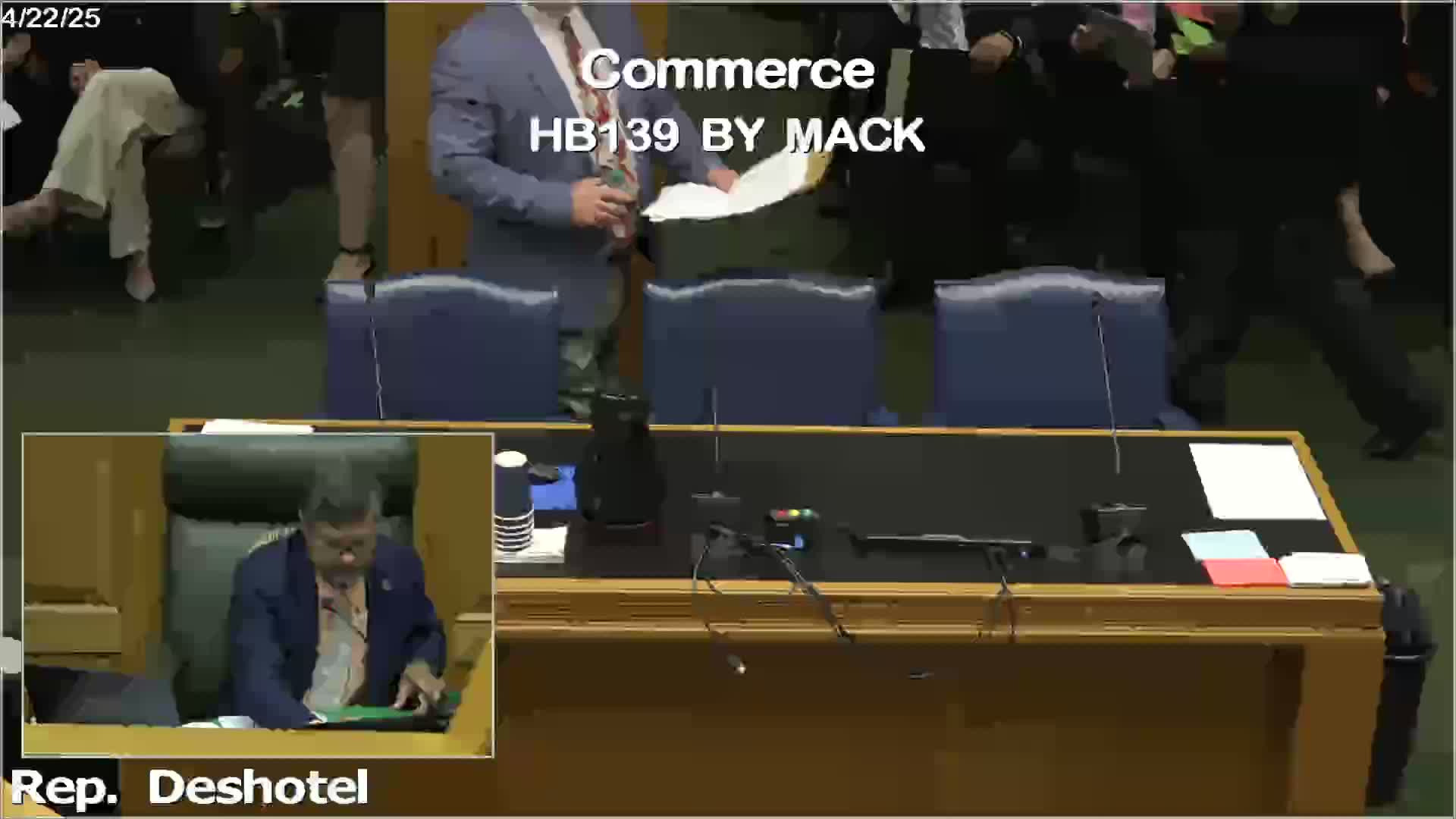Article not found
This article is no longer available. But don't worry—we've gathered other articles that discuss the same topic.
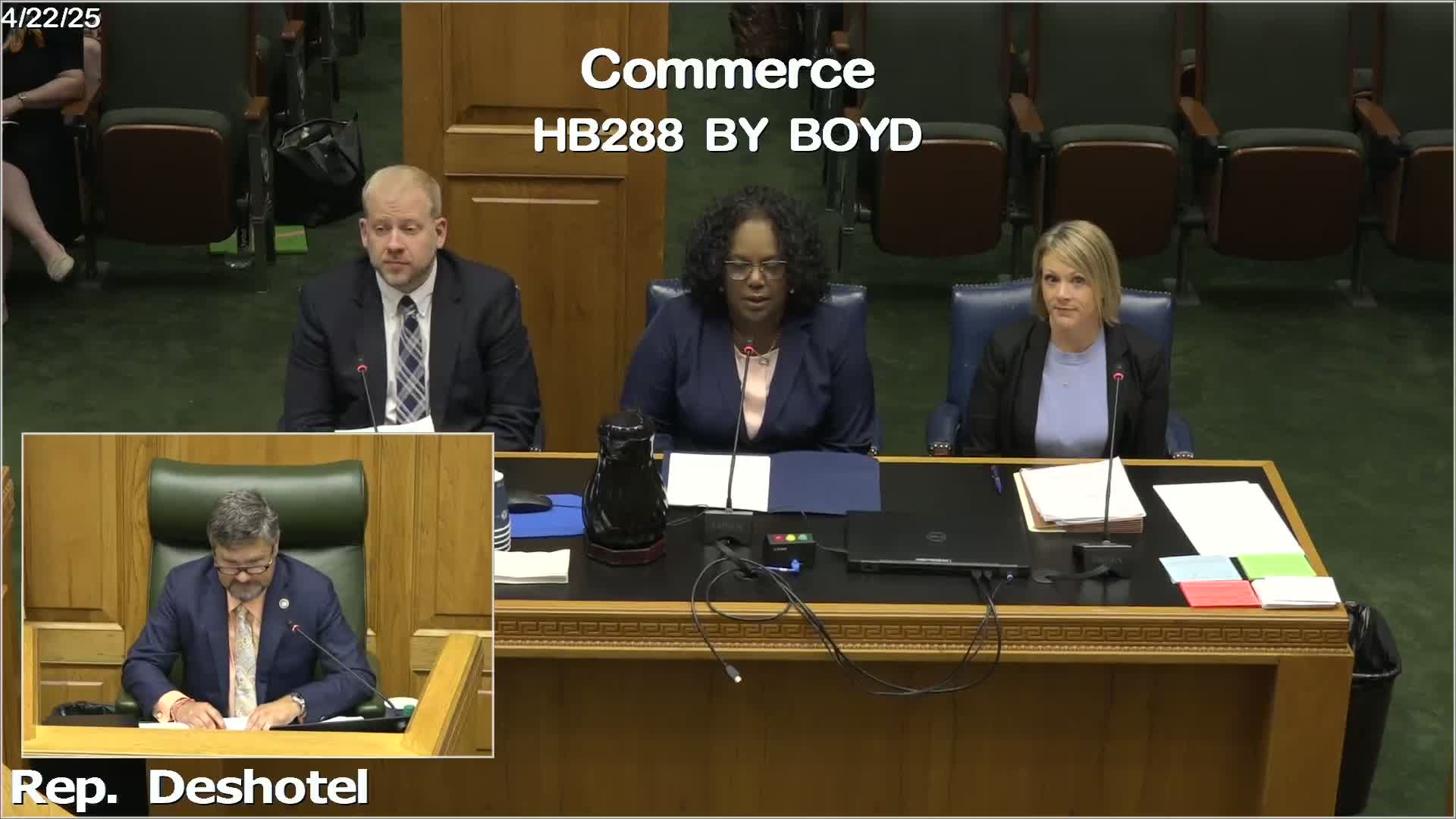
Panel approves bill clarifying appraiser continuing-education and repealing outdated deadlines
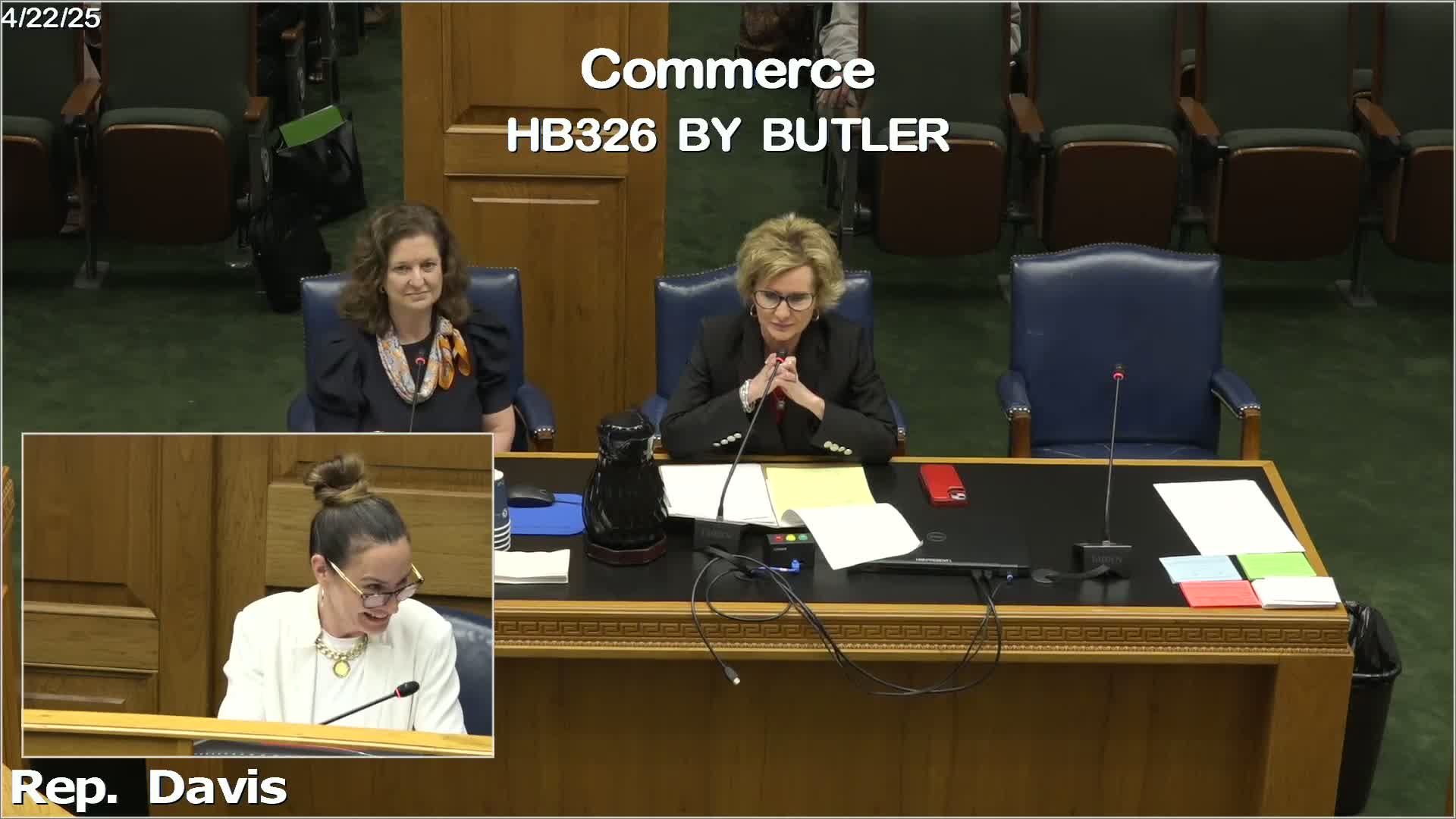
Committee backs cosmetology board fee increases after board warns of deficits; amendment corrects permit fee wording
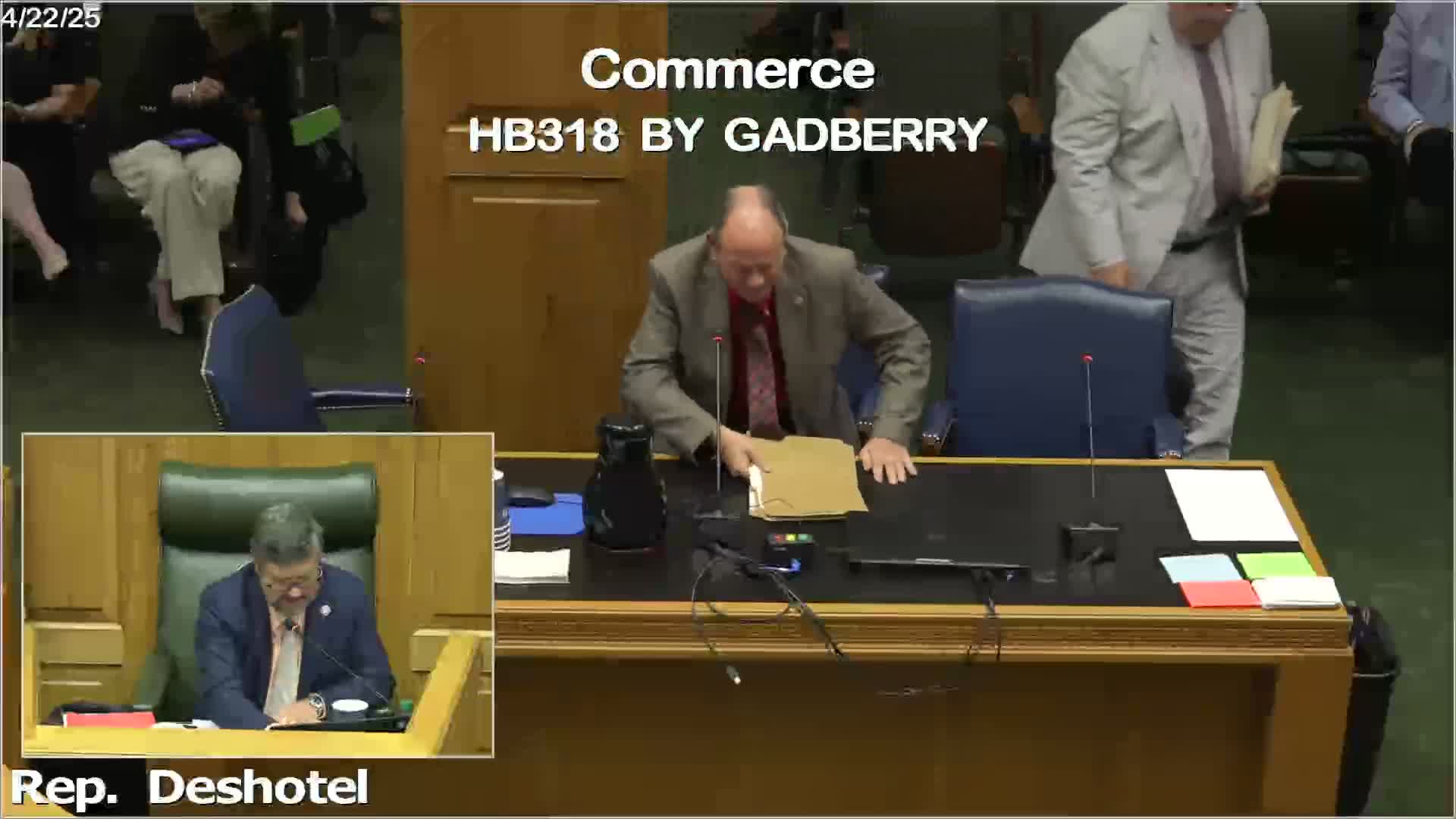
Committee approves bill to set FEMA-based minimums for manufactured, modular homes; allows local freeboard increases
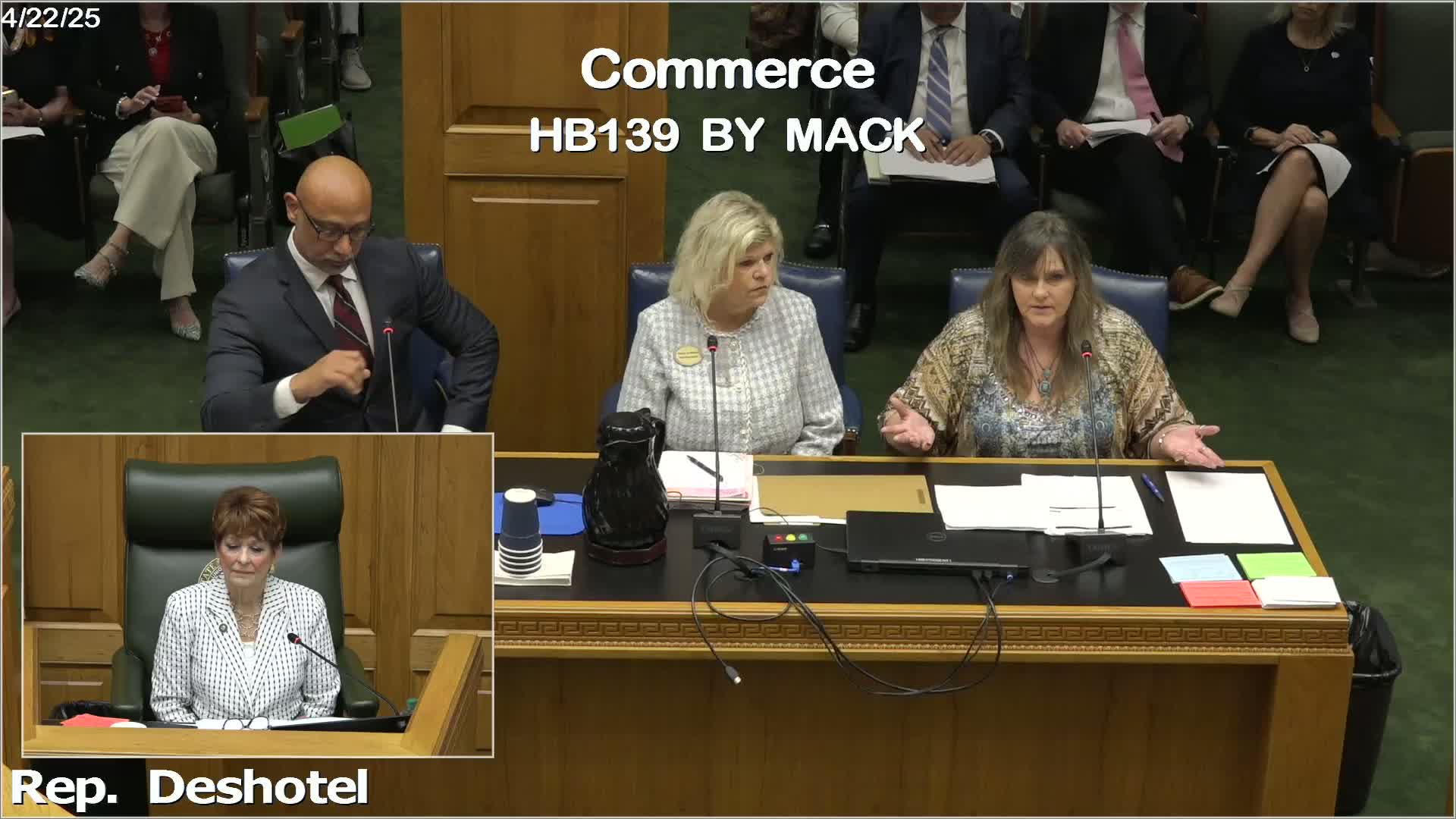
House committee approves Cruz bill to list utilities that provide aggregate energy reporting
